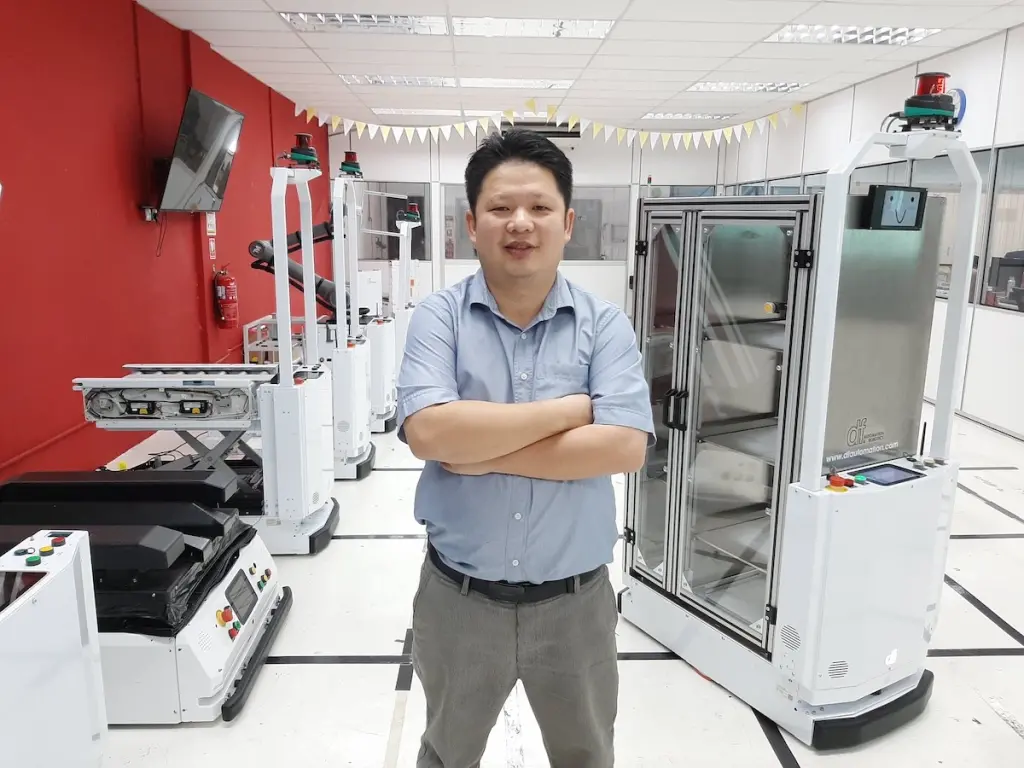The age of industry 4.0, in which new technologies like robotics and artificial intelligence will help us work faster and better, has dawned upon Malaysia.
The country is one of the leading global manufacturing hubs and is making strides toward digitalization across all industries through innovation.
“Malaysia has done relatively well across many innovation indicators including education, infrastructure, and business sophistication, but there is still much more to do if we are to fully leverage the rapidly evolving tech landscape and gain a competitive edge in the region,” says Rajen Dorairaj, senior manager of partnerships at the Malaysian Global Innovation & Creativity Centre (MaGIC). The government agency aims to support the growth and development of startups in the country.

Photo credit: zhu_zhu / 123RF
To that end, the Malaysian government is turning to startups to help power this new industrial revolution and has put various schemes in place to enable this.
In 2016, the government enacted the Industry4WRD policy, which aims to transform the manufacturing sector and related services. For startups, it has also built up a strong ecosystem of support that includes a vast network of accelerators and incubators. In a bid to transform the Malaysian economy, the government has also set up the National Technology & Innovation Sandbox (NTIS), which aims to speed up the development and commercialization of homegrown technologies by allowing young companies to test and develop their solutions in real-world environments.
As Malaysia doubles down on becoming a center for industry 4.0, several startups in the country are pushing the envelope in technology, especially in the realm of robotics. Here are three companies that are looking to spearhead this new industrial revolution.
1. T-Robot: Bringing automation to smaller businesses
T-Robot was founded in 2014 with the sole objective of making robotics affordable and accessible for small and medium-sized enterprises (SMEs).
“We noticed that there was a gap in industry – most robotic solutions or products are designed and developed for the larger corporations who can afford the high cost of adoption,” says Eugene Ng, co-founder of T-Robot. “However, many SMEs would benefit tremendously from robotics, but are put off by the costs involved.”

Eugene Ng, co-founder of T-Robot / Photo credit: T-Robot
T-Robot tackled this issue by developing robots that were simple and effective enough to be affordable.
For example, many linear robots used in assembly line processes work on six or seven axes, which allows for a greater range of motion. However, the manufacturing processes that SMEs use don’t need to be that complex. That’s why T-Robot developed a linear robot that operates only on three axes, which reduces the cost of production, installation, and maintenance for smaller businesses.
By focusing on offering solutions for SMEs, T-Robot also developed products that met the needs of local companies, and carved out its own niche in the market.
“Most robotic solutions are imported from the US, Europe, or Japan, but they aren’t designed for the specific needs of our local industry such as palm oil production or furniture-making,” explains Ng. “With our own technology, designed with local users in mind, we’ve been able to create our own space in the industry.”
With projects in markets such as South Korea, Tanzania, and Oman, T-Robot has grown by leaps and bounds since its launch. It was also recently awarded a project under the NTIS, which enabled the company to further develop and expand its capabilities.
However, T-Robot did initially struggle to find partners and customers. That’s when it tapped into MaGIC’s ecosystem for help.
“We received industry outreach support from MaGIC, where we were able to network with various clients, suppliers, partners and potential investors,” says Ng. “We were also able to connect with industry leaders in the MaGIC ecosystem who mentored us on our entrepreneurship journey.”
2. DF Automation & Robotics: Homegrown machines
Yeong Che Fai never gave much thought to becoming a startup founder until 2007, when he went to London to get a doctorate in bioengineering. There, he learned that a strong culture of innovation and entrepreneurship was vital to the growth of a nation’s economy.
“When I came back to Malaysia, I hoped that I could do something for the country by creating more technology companies,” shares Yeong. “At the time, I felt that Malaysia was lacking its own high technology firm, and I wanted to explore the opportunities in that area.”

Yeong Che Fai, co-founder of DF Automation & Robotics / Photo credit: DF Automation & Robotics
As a lecturer at the Universiti Teknologi Malaysia, he also wanted to help support students who were talented and had bright ideas.
In 2012, he joined forces with two former students, Ricky Yap and Tan Ping Hua, to launch DF Automation & Robotics, which focuses on automated guided vehicles and autonomous mobile robots.
“We realized that there were no companies in this space in Malaysia at the time, and that many foreign businesses weren’t willing to sell these robots to Malaysia, due to the small market size,” explains Yeong. “We were also shocked at the prices of these robots, and decided to create a homegrown robotics company that could meet the needs of manufacturers around the globe.”
At present, DF Automation & Robotics has customers as far flung as Mexico and counts several multinational corporations as its clients. The firm has also developed products that are used in a number of industries, from manufacturing to food and beverage.
MaGIC played a key role in getting the robotics startup off the ground. In 2015, the company participated in the MaGIC accelerator program, where it received guidance and mentorship. It was also awarded two projects in healthtech and food delivery under the NTIS, which helped give the business greater visibility.
MaGIC also helped Yeong grow significantly as an entrepreneur on a personal level.
“As an academic, I knew nothing about entrepreneurship [at the time],” he says. “MaGIC helped me learn skills such as pitching, business management, and leadership in order to grow my business.”
3. Robopreneur: Beyond manufacturing
Though most industry 4.0 applications have focused on manufacturing, Hanafiah Yussof went down a different path when he launched Robopreneur in 2015. He chose to focus on service robotics, which makes use of fully or semi-autonomous robots to perform services for the well-being of humans and equipment outside of the realms of manufacturing.

Hanafiah Yussof, CEO of Robopreneur / Photo credit: Robopreneur
“Robopreneur was founded with the main objective of commercializing my research on a robotic rehabilitation system to improve the learning and rehabilitation of children with autism,” explains Yussof. “After a few years in business, we found that demand for service robotics is on the rise, and there’s no local company in Malaysia that could provide solutions in this area.”
Robopreneur has expanded its offerings to include a wide range of service robots that cater to different industries and social enterprises. Some of the company’s products include the advanced development autonomous machine (ADAM), Malaysia’s first humanoid robot, and Pepper, a “social humanoid robot” that can recognize faces and emotions.
The startup also offers software solutions such as a robot receptionist and artificial intelligence products like facial recognition and analytics.
The company has worked closely with the Malaysian government and even developed a smart thermal scanner with facial recognition and attendance management system for use in government facilities and commercial buildings during the Covid-19 pandemic.
Robopreneur has also benefited from being in the MaGIC ecosystem. The firm took part in MaGIC’s global accelerator program (GAP) last year and got the support and guidance it needed to address the business’ key issues, including funding, legal requirements, and navigating regulations.
“Being a part of GAP helped us be more agile, well organized and motivated, and it improved our business management, financial management, funding activities, and networking and marketing skills,” says Yusof. “These are important elements that have made us strong and ready to face challenges in our journey.”
Full article from – https://www.techinasia.com/3-startups-powering-malaysias-industrial-revolution

